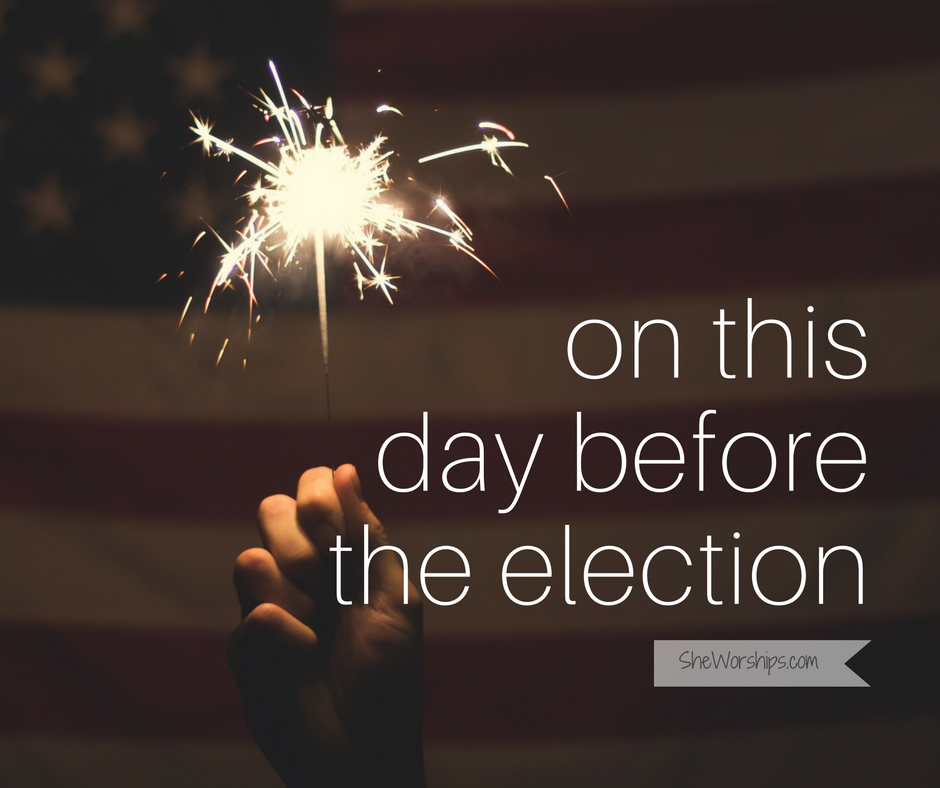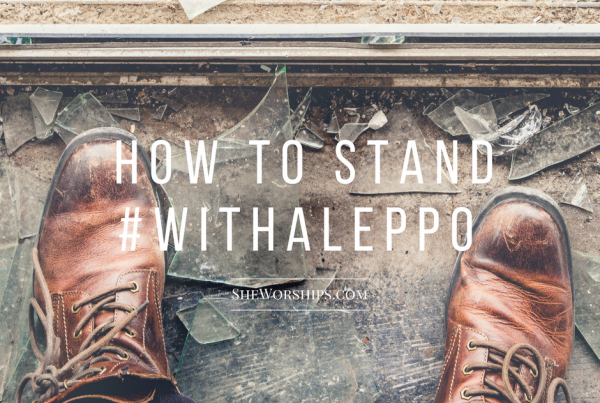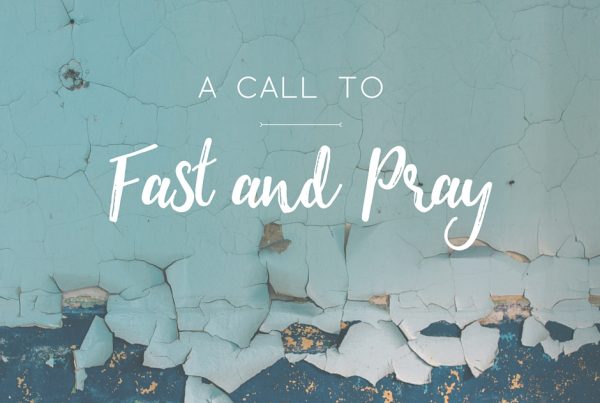
I don’t have to tell you tomorrow is a big day. We all feel it. We’ve felt it. It’s been an ugly election season that keeps getting uglier. It’s been gross, made all the grosser by social media. It’s like the internet is the real-life embodiment of James 3:5–“How great a forest is set ablaze by such a small fire!” James might as well have added, “I’m looking at you, Twitter!”
When I think about November 9th, I do worry about who will be elected and what that means for our country. But here’s what I worry about more: unity. Our country is SO divided, our citizens so vocally opposed to one another, and that division has seeped into the church. Christians are questioning one another’s basic commitment to Jesus, and it’s left me wondering: what will it look like to move forward from this? What will it look like to heal?
As I was praying about this and searching Scripture for answers, I remembered another deep conflict in the early church, between two heavyweight Christian men: Peter and Paul. These two men, who essentially midwived the church into existence, had so much in common. Both were Jewish. Both were apostles. Both were eventually martyred. Both lived and breathed for Christ. These two men were on the same team, running toward the same prize, and yet, in Galatians 2:11 we read these words from Paul:
But when [Peter] came to Antioch, I opposed him to his face, because he stood condemned.
For a little context, Peter had succumbed to peer pressure. A group of Jews disapproved of him eating with Gentiles. They believed his behavior made him unclean, so they pressured him to separate himself. And Peter caved.
When Paul realized what had happened, he condemned Peter in the strongest terms. He went so far as to accuse Peter of behavior “not in step with the gospel.” It was a harsh criticism from one Christian leader to another, the kind of accusation that could send a crack down the center of the church. If something similar happened today, there would arise a great tide of taking sides and blog think pieces and the internet would pretty much implode. It would be a big deal, especially since Paul made the conflict so public.
And yet, we have no evidence of division. Both men remained in the fold. Jesus’ words to Peter–“On this rock, I will build my church”–stood firm. As for Paul, the condemner, he never stopped pleading for unity among Christians.
In our particular moment in history, I believe their example is a prophetic one. Their conflict leaves behind a powerful legacy, which is that Christians can disagree. Yes, Bible-believing, gospel-affirming, Jesus-following, enemy-loving Christians can disagree. In fact, we can disagree sharply, and it doesn’t have to tear us apart. There is room in the church for disagreement, and do you know why? Because God is a reconciler who nailed death to the cross, and that includes the death of unity. Unity, like life, can be resurrected and redeemed. Division doesn’t get the last word.
Peter and Paul’s example also reminds us that disagreement can be a sign of health. Not constant disagreement, or mean-spirited disagreement, but sincere, constructive, loving disagreement. In fact, the healthiest relationships have conflict. A marriage without conflict is a marriage without honesty. A family without arguments is a family ignoring its problems. Healthy marriages, and healthy families, have fights that fight fair, and it’s the same in the church.
We do not have to fear disagreements, or serious divides, or hurtful words that cannot be unsaid, because Jesus absorbed it all. He died for “those other people”–just as he died for you and me–and no matter what you think about Christians on the other side, Jesus already forgave them. He already died for them. Even if you are right and they are wrong, you don’t have to re-crucify them. That is the scandal of the gospel. It’s ALL already covered. It’s ALL already done. Which means unity and reconciliation is always possible.
Now don’t get me wrong. It’s not easy. Christian unity requires us to die to ourselves constantly. We die to our own need to be right, to be vindicated, to say “I told you so.” It means dying to self-righteousness, and it means swallowing giant mouthfuls of pride. It also means repenting of our own role in the brokenness. But we can do it all knowing that Jesus, the rightest of the right, who was never ever wrong, who could have shouted I TOLD YOU SO from the mountaintops, instead declared, “Father forgive them, for they know not what they do.” He is our example, our standard, our call. Nothing less.
As for Peter and Paul, it’s likely that Peter repented. Acts 15 suggests that he did, but we know that most conflicts don’t resolve so neatly. There are disagreements among us that will never be resolved this side of eternity. And yet, agreement was never a condition for unity. Paul, the man who preaches unity louder than anyone, also had strong opinions. He condemned people. He judged people. He disagreed. But he did it all with a posture toward unity, grounded in the common bond of Jesus. That paradox–of strong disagreement amidst unity–is a freedom, and a challenge. When the world crumbles under disagreement, we lean closer.
That’s our call in the days ahead, a unity that doesn’t exclude disagreement, and doesn’t gloss over the real concerns and real problems among us, but does exclude angry Facebook rants, sarcastic tweets, or drive-by jabs. The real work of unity demands patience, listening, earnest efforts to understand, and letting others have the last word. It’s not nearly as gratifying as spouting off on social media, or commiserating with your spouse, but it’s the only path to unity. There is no other.
Come November 9th, we’ll have our work cut out for us. That’s just reality. The brokenness is deep. But the cross and resurrection light the way. Because of these two cosmic acts, we don’t have to punish people, and our unity doesn’t have to wither and die. Unity has already been achieved in Christ, so let’s roll up our sleeves, and do our best to live into it. And in the words of Sarah Bessey, when we disagree, let’s “disagree beautifully.”
Sharon
Sharon








Love your words, Sharon. Thanks for sharing. 🙂